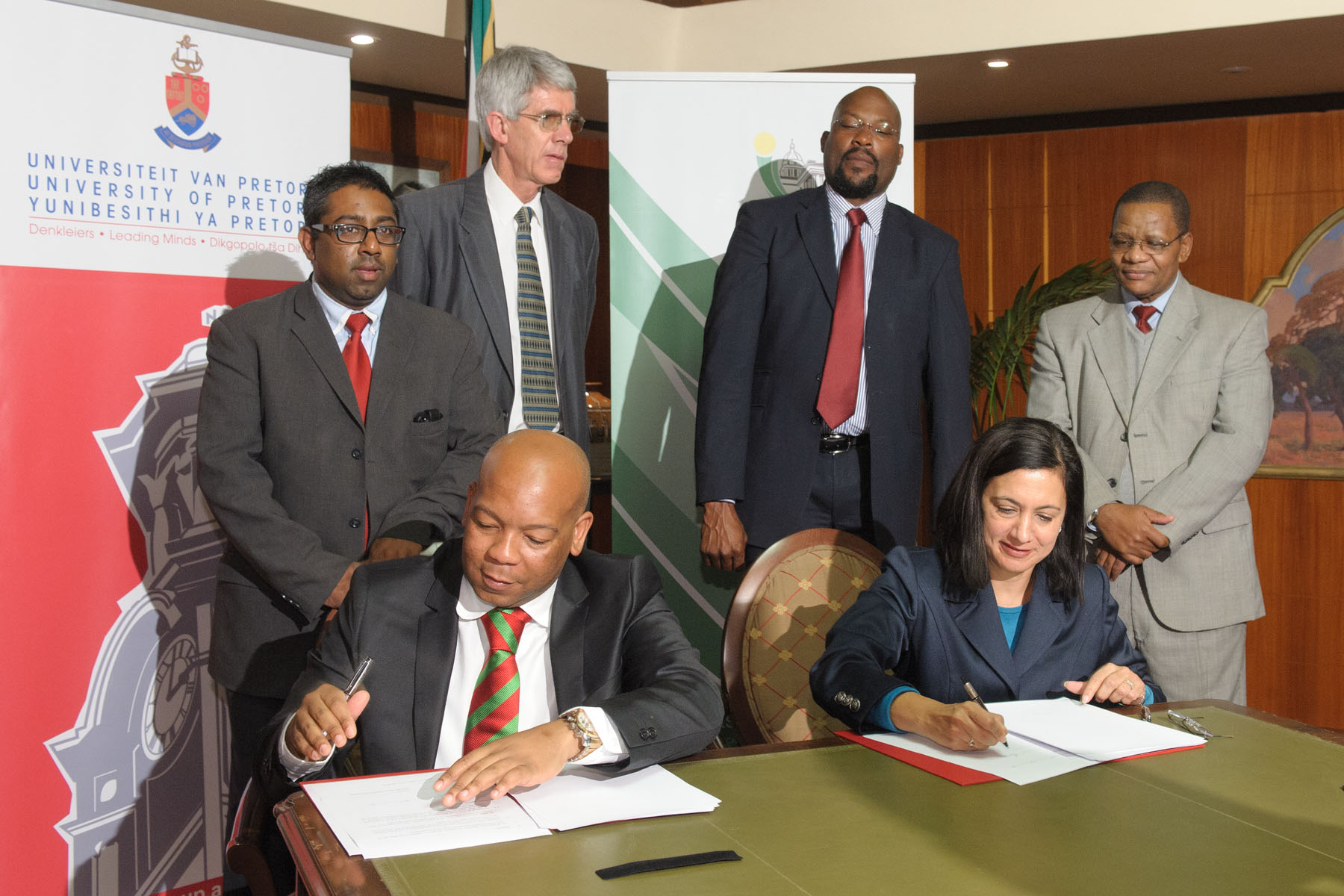Posted on July 24, 2013
Both the institutions share a common vision of improving the socio-economic profile and the efficiency of the City in the delivery of services. This will be achieved by addressing issues of common interest and mutual benefit to both the institutions. Among the issues will be:
The University of Pretoria and the City of Tshwane already have a long-standing relationship dating back to 2008, when they signed a Memorandum of Understanding. Both the institutions have been working together on reviewing the strategies which would contribute positively on the growth of the city. University of Pretoria’s Strategic Plan (UP 2025) and the City of Tshwane Growth and Development Strategy 2055 (GDS 2055), have both been necessitated by a need to reposition and strengthen the already existing relationship between them.
“The City of Tshwane recognises the University of Pretoria as an anchor academic institution with regard to research and innovation in Tshwane, and with the signing of the Memorandum of Understanding, both the City and the University are forging an on-going engagement and stronger relationship. This will enhance the position of Tshwane as a University City and to strengthen efforts to develop a vibrant knowledge economy in the city,” said Prof De la Rey.
The University of Pretoria also commissioned a study in 2011 which showed that the University of Pretoria’s total contribution amounted to close to R20 bn nationally, with the lion’s share of R14 bn in the City of Tshwane. The study has also established that, in Tshwane alone, a total household income arising from UP’s activities amounted to R3,6 bn.
“We are very proud of that contribution and our intention is that the University will continue to grow. I should also mention that we make a contribution to the City of Tshwane by bringing talent from the rest of South Africa, and from the world, particularly from the African region. Many of those graduates stay in the city and the country and make a valuable contribution to society,” added Prof De la Rey.
By signing the MOU, the University of Pretoria has committed itself to becoming a resource for the City of Tshwane and to ensure that the City of Tshwane will become a world-class metropolitan complex.
Mr Ramokgopa commended the long-standing interdependent relationship the City has had with the University for many years. He said that the City of Tshwane strives to promote excellence and meritocracy and it is pleased by the collaboration it has with the University of Pretoria, which has been instrumental in this regard.
“It is important to cement the relationship between the City of Tshwane and the University of Pretoria due to various programmes we have engaged in. This MOU confirms the work that we have been doing as a City and we think that when you study our Vision 2055 over time, knowledge will play a significant role in the growth of the city,” he said.
Mr Ramokgopa said the City of Tshwane is proud of its association with the University of Pretoria brand which has been at the forefront of productivity, not only in terms of research, but also on the sporting front.
“We are happy to be associated with the University of Pretoria, and this is a relationship we hope to sustain. And I am sure that the future of a working relationship between the two institutions is bright,” he concluded.

Mr Ramokgopa and Prof Cheryl de la Rey sign the agreement. Witnesses in the background are (from left to right) Mr Subesh Pillay, Member of the Mayoral Committee (MMC) responsible for Economic Development and Planning in the City of Tshwane; Prof Antony Melck, Executive Director at University of Pretoria and also a Chairperson of the Audit Committee of the City of Tshwane; Mr Jason Ngobeni, City Manager of Tshwane; and Prof Themba Mosia, Vice-Principal at University of Pretoria responsible for Student Affairs and Residence Affairs and Accommodation.
Copyright © University of Pretoria 2025. All rights reserved.
Get Social With Us
Download the UP Mobile App